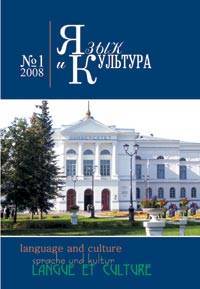Traditional and tramsformational methods of cross-cultural business communication of North East countries of Asian-Pacific region with potential business partners of Russia and other foreign countries
The article stresses that the Asian-Pacific region is the most modern center of the world economy and trade. The development of Russia's economic relations with North East Asian countries in the Asian-Pacific region has become an important strategic priority of cooperation in the Asian-Pacific region. The Russian Federation and the Republic of Korea are friendly business partners in the Asian-Pacific region. In the early 1990s diplomatic relations between Russia and South Korea were established. These relations provided the starting point for bilateral business relations between our countries. Meetings of our Heads of States, numerous economic forums, scientific and practical conferences, seminars of state officials, public representatives, scientific circles and businessmen play an important role for mutual understanding between two countries and for the development of entrepreneurship. They helped to bring our countries and business together for entrepreneurial activity. It is vital to maintain cross-cultural business communication between the Russian business community and Asian countries in the Asian-Pacific region. In fact, Russian-Korean business is minimally active. It is because nowadays Russian businessmen have not become yet the part of the business society in the Asian-Pacific region. Russia will also have to concentrate its state and regional administrative resources for the development of business cooperation with South Korea in Siberia and the Far East of the country. The reasons for inactive business relations between our countries are philosophical and ideological, national and traditional, cultural features of business organization and management, which have been woven over the centuries in Asian countries of the Asian-pacific region and Russia. These differences between business partners can be overcome in a cooperative spirit. It is necessary to note that the market economy of the Republic of Korea is based on traditional and transformational ideology of "Communitarianism", which is based on the ideas of the "Three traditional principals. Communication and business cooperation methods between potential partners in South Korea are based on the traditional doctrine of Confucius, which are intransgressible canons in the sphere of mutual business organization and activities. The sources of the article are numerous materials of economic forums, scientific-practical conferences, symposia, seminars devoted to the development of business relations between Russian and Korean businessmen, theoretical works on cross-cultural business communication, the work of S.K Gural on the integration of methods of synergy's mechanisms for the successful accomplishment of cross-cultural business communication. The increasing interest of Russia in the Asian-pacific region is a tendency of the modern world economy. In Russia we can see the process of returning to the universal human, traditional, spiritual, ethical and moral values, which are inculcated in human civilization. In the 1990s market relations were being revived in Russia. The development of the international business and foreign trade relations of Russia with world countries were objective reasons for a revival of cross-cultural business communication as a scientific discipline, the development of the international relations and business at the state, private, cooperative and individual levels. With the help of knowledge in the field of the international business communication Russian business community became to use professionally the methods, mechanisms, instruments for promoting its activities to foreign markets including North-East Asian countries. In North-East Asian countries, in particular South Korea, business is based on the canons of the Confucius philosophy and ideology in the course of cross-cultural business communication. The family in South Korea is the foundation of society, the welfare and success in the social-economic and cultural life of the country. The development of the economic relations with the Republic of Korea for the long-term mutually beneficial cooperation requires the Russian business to study and adopt the features of traditional and transformational market economy of the "Communitarianism", on which the Confucius philosophy and Indo-Buddhist ethics are the ideology of the market economy of the country. Russian business representatives' knowledge of the features of Korean customs - family, clans, rules of behavior, principals and norms of communication, methods of conducting negotiations - may have a positive effect on the outcome of the business meeting and will help to establish the mutually beneficial cooperation with Korean business partners. It is necessary to remember that the traditional norms being based on the Confucius philosophy in South Korea are higher than the written laws of business cooperation in the European Christian countries.
Keywords
Северо-Восточная Азия, АТР, Россия, Южная Корея, коммунитаризм, семья, клан, договор, контракт, слово, методы, дело, бизнес, сотрудничество, предпринимательство, традиции, философия, конфуцианство, еврохристианские страны, закон, принципы, нормы, этика, North-East Asia, Asian-Pacific region, Russia, South Korea, communitarism, family, clan, treaty, contract, word, methods, work, business, cooperation, entrepreneurship, customs, philosophy, confucianism, european christian countries, law, principals, norms, ethicsAuthors
| Name | Organization | |
| Kim K. V. | Far Eastern State Technical Fisheries University | silla.kim@yandex.ru |
| Kim E.K. | Far Eastern State Technical Fisheries University | 13@mail.ru |
References

Traditional and tramsformational methods of cross-cultural business communication of North East countries of Asian-Pacific region with potential business partners of Russia and other foreign countries | Yazyk i Kultura – Language and Culture. 2017. № 40. DOI: 10.17223/19996195/40/14
